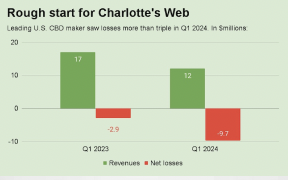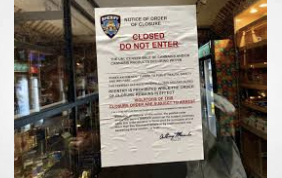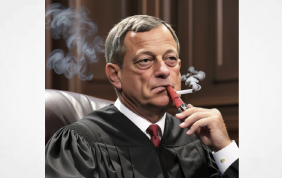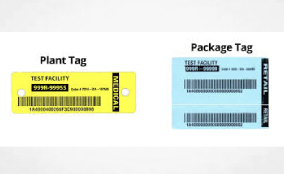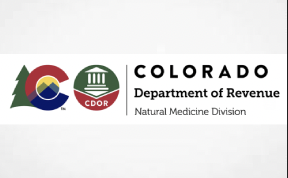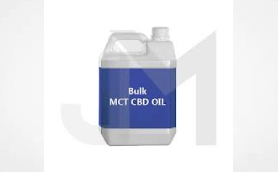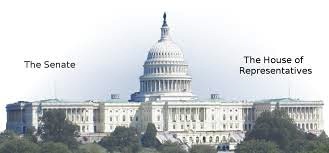|
WASHINGTON, D.C. — The Hemp Industries Association (HIA), the leading non-profit trade association for 24 years consisting of nearly 1,000 hemp businesses, applauds the introduction by U.S. Senate Majority Leader Mitch McConnell (R-KY), of S. 2667, The Hemp Farming Act of 2018, on April 12, 2018. The Hemp Farming Act of 2018, if passed, would remove industrial hemp from Schedule I of the Controlled Substances Act, and federally legalize commercial cultivation of the crop. The HIA supports the passage of this bill, and enjoins Congress to pass this legislation during its 115th session, thereby ending over 80 years of prohibition of the extraordinarily versatile hemp crop. Passage of this legislation would mean that American farmers may finally benefit commercially from the economic opportunity hemp offers and supply the largest consumer market for hemp products in the world—that of the U.S.
HIA Executive Director Colleen Keahey Lanier said, “The removal of industrial hemp from the Controlled Substances Act is critical to the advancement of hundreds of farmers and stakeholders that the HIA represents. Our association also supports state chapters whose committed leaders have been working hard to support favorable state legislation to develop agricultural pilot programs for hemp farming and domestic whole plant products since 2014.”
HIA President Joy Beckerman said, “Despite the clear language of Sec. 7606 of the Farm Bill, along with protective hemp amendments that have continued in the federal Omnibus since 2015, the DEA continues to put forth guidance and implement Rule that conflicts with legislative intent, causing state lawmakers and state and federal regulatory agencies to remain cautious. We expect research and American innovation to springboard under this proposed full legalization.”
Though the Farm Bill of 2014 included provision Sec. 7606 The Legitimacy of Industrial Hemp Research, which legalized cultivation of the crop for research purposes in states that permit the cultivation of hemp either through an act of legislation or by an initiative of the people; U.S. hemp industries remain constrained by lack of full commercial hemp farming legislation. Federal legalization of hemp farming, as proposed by S. 2667 will significantly advance the growth of the hemp industries in the U.S. Noteworthy areas of expansion for the hemp industries that this bill will impact include:
Improved cooperation with regulatory bodies and federal programs, such as the USDA National Organic Program: Currently, Canadian grown hemp may be certified USDA Organic, but U.S. grown hemp may not, per the recommendation of the National Organic Standards Board which regards hemp as being of “undetermined legal status.” Full federal legalization of commercial hemp farming will assert definite legal status of the crop, and charge the USDA with revising its exclusion of U.S. grown hemp from the National Organic Program.
Protections for interstate commerce of U.S. grown and manufactured hemp products: The Consolidated Appropriations Act of 2018 specifically prohibits federal authorities from using funds to obstruct the “transportation, processing, sale, or use of industrial hemp, or seeds of such plant [grown in compliance with Sec. 7606]…within or outside the state in which the industrial hemp is grown or cultivated.” Despite this, both state and federal agencies have impeded interstate commerce of U.S. grown hemp, as demonstrated in December of 2016 when the DEA and North Dakota Department of Agriculture indicated to HIA member Healthy Oilseeds, LLC, that a DEA permit was required for interstate sale of the company’s hemp products (1). Passage of S. 2667 would rightfully place hemp under USDA regulatory oversight, and firmly establish the legality of interstate hemp commerce—a crucial economic framework for the growth of these industries in the U.S. Furthermore, passage of S. 2667 will alleviate ongoing confusion at the U.S. Border where Border & Protection agents have been subjected to conflicting and confusing federal guidance, resulting in the delay and apprehension of hemp raw materials, foods, and certified hemp seed imports.
Normalization of finance, banking, insurance and other business proceedings for the hemp industries: American hemp farmers, manufacturers and entrepreneurs face barriers to market entry not experienced by other agricultural and production industries, such as inability to access financing and insurance, and reluctance from major banking institutions to work with hemp businesses. Confirmation of the federal legality of hemp would ease cooperation between hemp businesses and the financial sector, and provide farmers with access to crop insurance, thereby spurring growth of the hemp industries and boosting the U.S. domestic economy, particularly in rural areas.
Advance research opportunities: Despite the definition of hemp asserted by the Farm Bill, and the consumer demand for hemp-derived cannabidiol (CBD) products for pets and animals, the American Veterinary Medical Association issued a guidance in January titled “Cannabis and What Veterinarians Need to Know,” that references misinformation from DEA’s Clarification of the New Drug Code (7350) for Marijuana Extract. The DEA’s statement reports that hemp is only exempted parts of the plant from the genus Cannabis, and fails to acknowledge that hemp is a distinct non-intoxicating variety of Cannabis, misinforming groups such as the American Veterinary Medical Association and others. Passage of S. 2667 will affirm the uses of hemp products, which are non-intoxicating, and open the door to research opportunities in the sector of CBD and animal product applications, and beyond.
Ensure access to public water rights for hemp farmers The Bureau of Reclamation prohibits the use of federally-controlled water to be used for irrigation of industrial hemp crops, as long as the crop’s legal status remains conflated with marihuana under the Controlled Substances Act. Water rights in the Western U.S. have been denied to certain Farm Bill compliant hemp farmers. In response, U.S. Senators Michael Bennet (D-CO), Steve Daines (R-MT), Jon Tester (D-MT), Cory Gardner (R-CO), Ron Wyden (D-OR), and Jeff Merkley (D-OR), introduced bipartisan legislation in July of 2017, known as The Industrial Hemp Water Rights Act, to allow farmers across the West to use the water they own through private water rights to grow industrial hemp in legal hemp states. Passage of the Hemp Farming Act of 2018 will also resolve this issue by restoring hemp as U.S. agricultural commodity.
Protect the variety of hemp-derived products per a “Whole Plant” definition of hemp: The Hemp Farming Act of 2018 asserts a botanical definition of hemp that rightfully encompasses the “whole plant,” as well as extracts derived from hemp. This language protects the legality of production and consumption of the diverse array of hemp derived products, including hemp extracts such as cannabidiol or CBD—a hemp product that is recently the subject of DEA scrutiny per the administration’s 2016 attempt to regulate CBD products as “marihuana extracts” (2). Federal adoption of a “whole plant” legal definition of hemp will further validate the legitimacy of hemp products as non-drug commodities, thus strengthening confidence among consumers and catalyzing the expansion of the U.S. hemp market.
|

